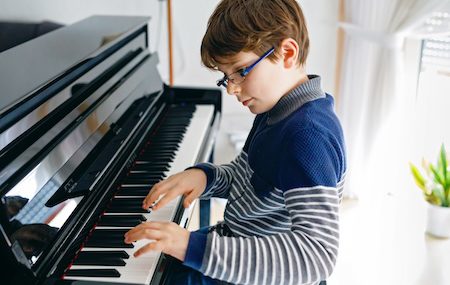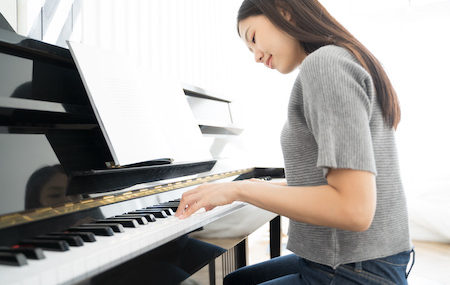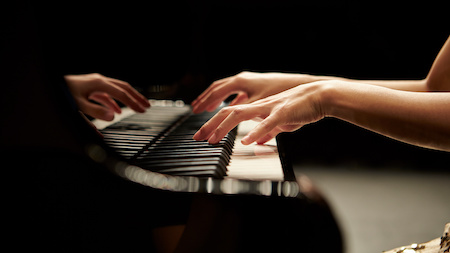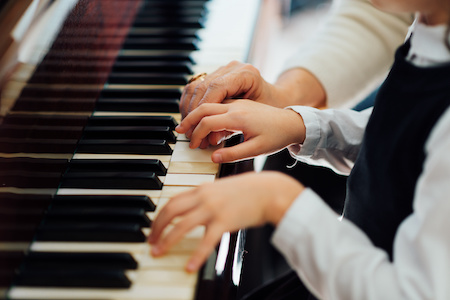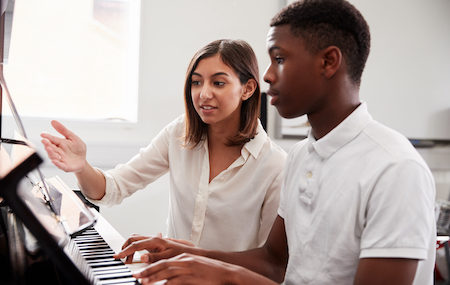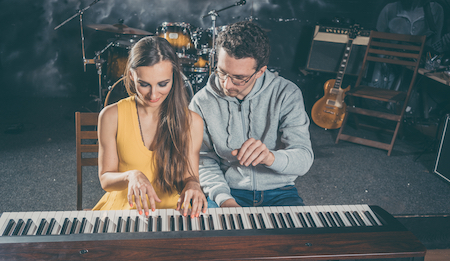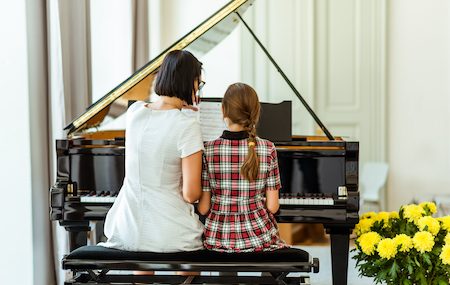As a parent, it’s tough to know what to sign your kids up for. You want them to stay active. You want to build confidence. You want them to succeed in life. How do you find all of that?
School is a huge part of their days. But you want extracurricular activities too. Sports? Arts? Music?
Parents look to piano lessons for a variety of reasons. It’ll teach discipline and patience. It’ll boost confidence. It’ll build creativity.
There are so many reasons to pursue piano, but many parents feel enhancing cognitive development tops the list.
You want a child who does well in school. You want to provide them with every advantage possible. That’s why piano lessons should be at the top of the list.
Have you ever played the piano yourself? It’s not as easy as sitting down and touching the keys, producing a melody from the start. That’s why a child needs piano lessons – to develop skills as they improve.
Piano lessons play a significant role in enhancing memory. Children develop muscle memory through repeated practice of scales and pieces, which helps them remember how to play without actively thinking about each note. Memorizing music and understanding music theory also strengthen long-term memory, requiring kids to recall information accurately over extended periods.
Memory may be the start, but it’s not all. Learning to play the piano improves spatial-temporal skills, which are crucial for understanding patterns and spatial relationships. Reading music involves recognizing patterns in the arrangement of notes, while navigating the keyboard enhances spatial awareness and the ability to judge distances between keys. Imagine how that will transform in life.
Ever become distracted in your daily life? Piano lessons can give your kids a boost. Piano lessons help improve executive functioning skills like planning and organization. Learning a piece of music requires kids to plan and organize their practice sessions. Additionally, working through challenging sections of music enhances problem-solving abilities and cognitive flexibility.
Taking it to the next level, piano playing is an excellent way to develop multitasking skills. Children must coordinate both hands to perform different tasks simultaneously, which strengthens their ability to manage multiple activities at once. Reading music while playing also requires simultaneous processing of visual and motor tasks, further enhancing their multitasking abilities.
Practicing the piano requires sustained attention and concentration, which can improve a child’s overall focus and attention span. Paying close attention to the details in music notation, such as dynamics and articulation, sharpens their focus and attention to detail.
All of this adds up to helping your kids do better in school. Piano lessons can help. Understanding rhythmic patterns and timing in music involves mathematical thinking, such as fractions and division. Counting beats and measures also enhances numerical skills and the ability to understand and manipulate numbers. And math is just the start! They’ll be able to use all of these skills wisely, making them better at everything they do.
And isn’t that most important of all? To help your kids be well-rounded people?
Maybe that’s the reason to invest in piano lessons today.
